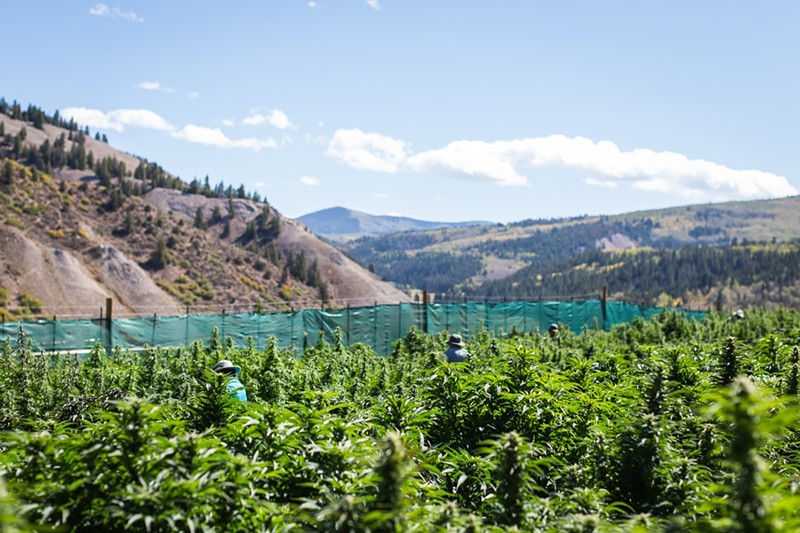Colorado’s marijuana cultivation space has shrunk considerably over the past year, with licensed growing operations dropping by nearly 20 percent since last September, state data shows.
According to Colorado Marijuana Enforcement Division records, there were 824 licensed marijuana growing operations in the state as of September 2024, with 558 of them licensed to grow recreational marijuana and 266 licensed for medical (although many growing operations are dual-licensed to grow both at the same location). At the same point last year, there were 1,013 growing licenses across the state.
It’s not like 2023 was a good year, either. From 2022 to 2023, Colorado saw about a 15 percent reduction in marijuana growing licenses, according to MED numbers, while the state’s marijuana industry cut an estimated 10,000 jobs, according to a report from cannabis industry staffing firm Vangst.
After record-breaking performances during the COVID-19 pandemic in 2020 and 2021, Colorado’s marijuana industry experienced a surge in growers and a surplus of product. The oversupply and increased competition from states new to legal marijuana put commercial pot sales in a downward spiral. In 2021, annual dispensary sales peaked at over $2.2 billion, but that number decreased by over 31 percent from 2021 to 2023, and this year is expected to come in even lower than last.
According to the MED’s latest report on monthly marijuana sales in Colorado, dispensaries sold just over $122.5 million worth of marijuana in July. While that’s a little more than $10 million over the month before, it’s still 11 percent less than the $137.3 sold in July last year — and almost 21 percent less than the $153.9 million sold in July 2022.
“I hoped in the first quarter of this year that things would improve. If anything, the market went down, and things have gotten worse,” says longtime cannabis grower Jason MacLean. “That’s why I got out of here.”
The Denver-area native, a former co-owner of Cherry cannabis, considered branching out on his own in Colorado in 2023 but has since moved on to a cultivation venture in New Jersey; he’s also looking at northern New York. But even though MacLean still lives in Colorado and is open to consulting other growers here, he says he’s “probably not” going to pursue his own cultivation license in his home state any time soon.
“Other states have legalized, a lot of which are around Colorado, which doesn’t help,” he explains. “But the fire’s just not here anymore. A lot of people are desperate and hanging on by a thread.”
Like many other Colorado cannabis growers who are between projects, MacLean is now dabbling in the cultivation of psilocybin mushrooms, which are decriminalized in Colorado and soon to be legal for adults for therapeutic purposes. Although he doesn’t expect psychedelic mushrooms to have the commercial potential of marijuana, MacLean says it’s a fun challenge that’s keeping him busy.
Growing mushrooms for personal use in Colorado is currently a lot less stressful than working in the weed business, he adds, with an emphasis on the “business” part.
According to MacLean, getting paid for product on delivery by dispensaries isn’t the norm in Colorado as more stores struggle to stay afloat. The MED issued a memo in 2023 warning licensed marijuana vendors of delinquent dispensaries, and seeing stores abruptly shut down for failing to pay taxes isn’t uncommon, either.
“Being a small business, if you don’t get these dispensaries to pay, then you’re screwed. If a store goes ninety days over [payment], and you’ve sold your whole harvest…it’s so detrimental if you’re a smaller company,” MacLean says. “Too many white-collar people got into this, and there’s no passion. Now it’s all greed and who grows the most.”
H/T: www.westword.com



